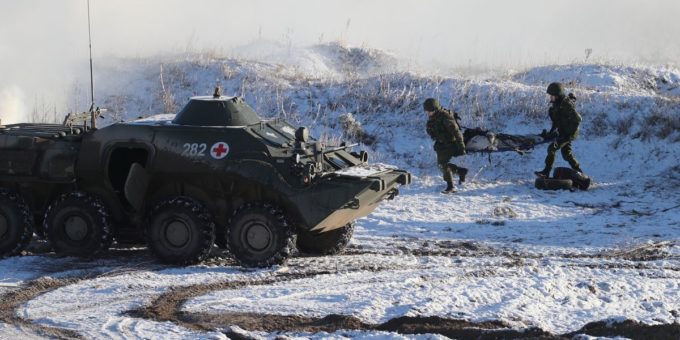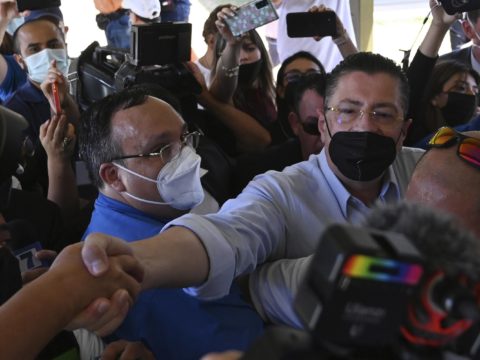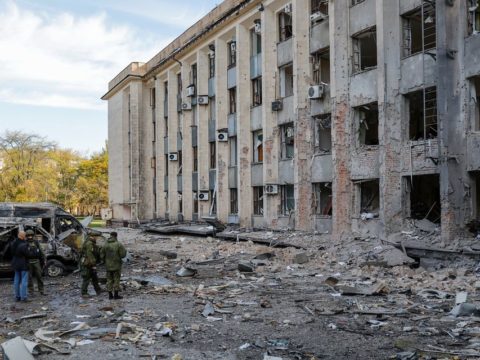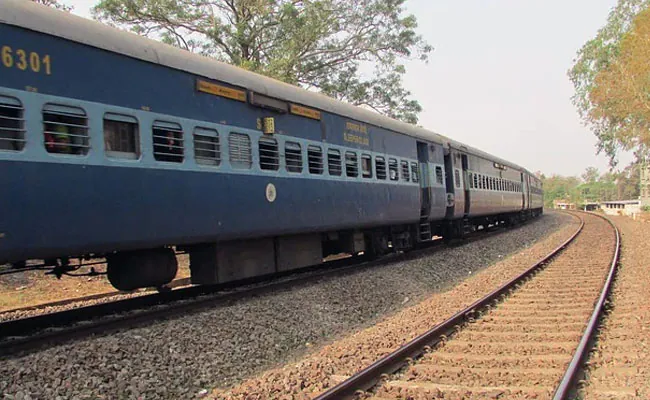
WASHINGTON/KYIV, Feb 13 (Reuters) – Russia could invade Ukraine at any time and might create a surprise pretext for an attack, the United States said on Sunday, as it reaffirmed a pledge to defend “every inch” of NATO territory.
Russia has more than 100,000 troops massed near Ukraine, which is not part of the Atlantic military alliance, and Washington – while keeping open the diplomatic channels that have so far failed to ease the crisis – has repeatedly said an invasion is imminent.
Moscow denies any such plans and has accused the West of “hysteria”.
Register now for FREE unlimited access to Reuters.com
Register
German Chancellor Olaf Scholz, on the eve of a trip that takes him to Kyiv on Monday and Moscow for talks with President Vladimir Putin on Tuesday, called for Russia to de-escalate and warned of sanctions if Moscow did invade..
A German official said Berlin did not expect “concrete results” but diplomacy was important.
In Washington, President Joe Biden’s National Security Adviser Jake Sullivan said an invasion could begin “any day now”.
“We cannot perfectly predict the day, but we have now been saying for some time that we are in the window,” White House National Security Adviser Jake Sullivan told CNN.
U.S. officials said they could not confirm reports that U.S. intelligence indicated Russia planned to invade on Wednesday.
Sullivan said Washington would continue sharing what it learned with the world in order to deny Moscow the chance to stage a surprise “false flag” operation that could be a pretext for an attack.
It would also “defend every inch of NATO territory … and Russia we think fully understands that message,” Sullivan added in a separate CBS interview.
Biden spoke to his Ukrainian counterpart Volodymyr Zelenskiy on Sunday and they agreed on the importance of continuing to pursue diplomacy and deterrence in response to Russia’s military build-up, the White House said after the call.
Biden told Putin in a phone call on Saturday that the West would respond decisively to any invasion and such an attack would harm and isolate Moscow.
Ukrainian Defence Minister Oleksii Reznikov said on Twitter that Kyiv had so far received almost 1,500 tonnes of ammunition from allies delivered on 17 flights, including about 180 tonnes from the United States. read more
Sullivan repeated a warning for Americans to leave Ukraine, after the State Department said the U.S. embassy’s remaining diplomatic staff would work from the western city of Lviv.
RUSSIAN SECURITY DEMANDS
The Kremlin said Putin told Biden during their call on Saturday that Washington had failed to take Russia’s main concerns into account, and that it had received no “substantial answer” on key elements of its security demands.
Putin wants guarantees from the United States and NATO that include blocking Ukraine’s entry into NATO, refraining from missile deployments near Russia’s borders and scaling back NATO’s military infrastructure in Europe to 1997 levels.
Washington regards many of the proposals as non-starters but has pushed the Kremlin to discuss them jointly with Washington and its European allies.
“The diplomatic path remains open. The way for Moscow to show that it wants to pursue that path is simple,” U.S. Secretary of State Anthony Blinken said after he held talks on Saturday with Asian allies.
Washington and its European allies and others have been scaling back or evacuating embassy staff and urging citizens to depart immediately or avoid travel to Ukraine.
U.S. staff at the Organisation for Security and Cooperation in Europe (OSCE) began leaving by car from the rebel-held city of Donetsk in east Ukraine on Sunday, a Reuters witness said.
The OSCE conducts operations in Ukraine including a civilian monitoring mission in Russian-backed, self-proclaimed separatist republics in the regions of Donetsk and Luhansk, where a war that began in 2014 has killed more than 14,000 people.
Dutch carrier KLM said it would stop flying to Ukraine and Germany’s Lufthansa said it was considering suspending flights.
An adviser to Zelenskiy, Mykhailo Podolyak, said that regardless of what airlines chose to do Kyiv would not close its airspace as that would resemble “a kind of partial blockade”.
A French presidency official said on Saturday, after President Emmanuel Macron spoke with Putin, that there were no indications from what the Russian leader said that Moscow was preparing an offensive, though Paris remained “extremely vigilant”.
British defence minister Ben Wallace cautioned against putting too much hope in talks, telling The Sunday Times of London that there was “a whiff of Munich in the air from some in the West”, referring to a 1938 pact that failed to halt German expansionism under Adolf Hitler.
Register now for FREE unlimited access to Reuters.com
Register
Reporting by Humeyra Pamuk, Anton Zverev, Lydia Kelly, Andrew MacAskill, David Lawder and Katharine Jackson; Writing by Edmund Blair and John Stonestreet; Editing by Frances Kerry, Angus MacSwan and Daniel Wallis
Our Standards: The Thomson Reuters Trust Principles.















